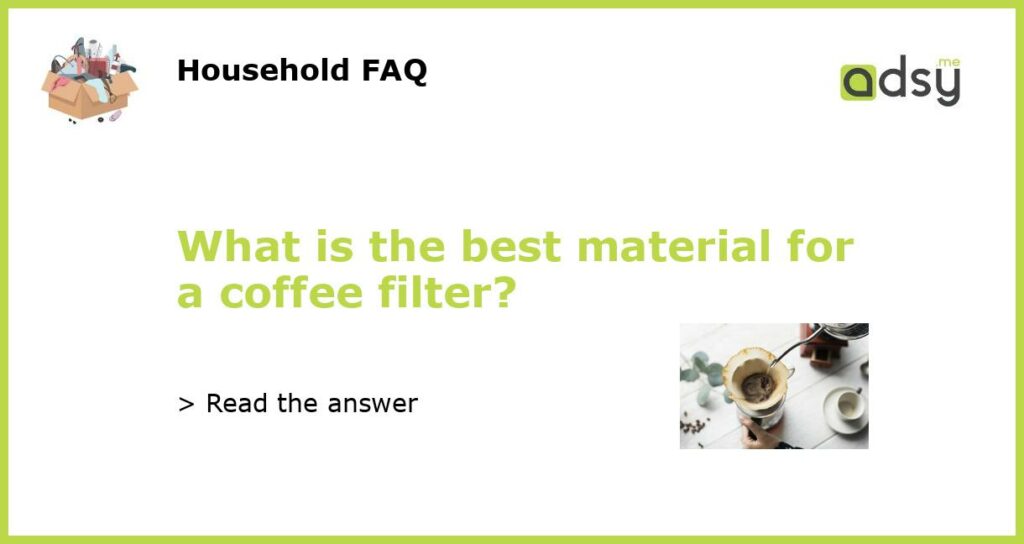The Benefits and Drawbacks of Different Coffee Filter Materials
When it comes to brewing coffee, choosing the right filter can make a big difference in the taste of the final product. There are several materials commonly used to make coffee filters, and each has its own unique benefits and drawbacks.
The Classic Choice: Paper Filters
Paper filters are the most commonly used type of coffee filter. They are inexpensive and readily available at most grocery stores. One of the advantages of using paper filters is that they remove most of the oils and sediments from the coffee, resulting in a clean and smooth taste. However, some argue that this also removes some of the flavor and body of the coffee. Additionally, paper filters are not environmentally friendly as they create a lot of waste.
Reusable and Eco-Friendly: Cloth Filters
Cloth filters, also known as coffee socks, are made from cotton or other natural fibers. They are a reusable and environmentally friendly option, as they can be washed and reused multiple times. Some coffee enthusiasts prefer cloth filters because they allow more of the coffee’s natural oils and flavors to pass through, resulting in a richer and fuller taste. However, the porous nature of cloth filters can also allow fine sediment to pass through, which may not be desirable for some.
The Hipster Choice: Metal Filters
Metal filters, usually made of stainless steel, are a trendy choice among coffee lovers. They are reusable and environmentally friendly, and some believe that they allow more of the coffee’s natural flavor to come through. However, they do not effectively filter out sediment or oils like paper filters do, which may result in a slightly gritty taste. Additionally, metal filters can be more difficult to clean than other types of filters.
Natural and Unique: Ceramics Filters
Ceramic filters, such as those made by Hario, are a unique and aesthetically pleasing option for brewing coffee. They are made from natural materials and allow for a slow and controlled brewing process. However, they can be more expensive than other types of filters and may require a bit of practice to master.
Choosing the best coffee filter material ultimately depends on personal preference and priorities. Paper filters are a classic choice that offer a clean taste, but are not environmentally friendly. Cloth filters are a reusable and natural alternative that allow for a fuller taste, but may allow sediment to pass through. Metal filters are a trendy and reusable option that may result in a slightly gritty taste, and ceramic filters are a unique and slow-brewing option that can be more expensive. Ultimately, the choice is yours!






